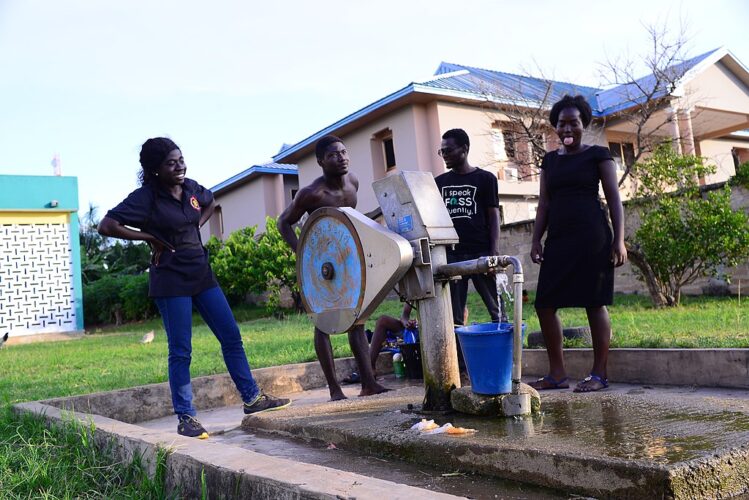Water, they say, is life! Sanitation is also described as a way of life, and is defined as the means of preventing human contact with the hazard of human waste in order to promote health. Clean water helps create good sanitation and better hygiene. This, in turn, leads to good health. Poor sanitation, water, and hygiene have many serious repercussions. Children – and particularly girls – are denied their right to education because their schools lack private and clean sanitation facilities. Women are forced to spend large parts of their day fetching water. Poor farmers and wage earners are less productive due to water-related illnesses, health systems are overwhelmed, and national economies suffer. Without safe water, good sanitation and hygiene, sustainable development is impossible.
This World Water Day is about accelerating change to solve the water and sanitation crisis. Too many people, schools, businesses, healthcare centres, farms, and factories don’t have safe water or toilets. Sustainable Development Goal 6 meant to achieve water and sanitation for all by 2030, but progress is falling short.
Action will be key on the agenda at the UN 2023 Water Conference – the first event of its kind in 50 years. You can share what action your community is taking on this page: https://www.worldwaterday.org/share-2023#activationkit
Activation kits are also available to promote World Water Day in several languages, including factsheets and social media cards.
Farm Radio International also has a series of radio scripts addressing water and sanitation issues. They were developed 15 years ago (2008) – but are still relevant today. Read these scripts to learn more. If you have the opportunity to use these on air or in a community theatre group, consider consulting local actors and knowledge partners to ensure the information is still relevant, or to adapt the information to highlight the actions of groups in your community.
“Clean water and a clean environment make a better life” is a drama script featuring a village elder, woman opinion leader, a member of parliament, and assembly member of the local council.
In this script, a village is plagued by a serious water-related disease problem. The problem is resolved through the efforts of the local people in collaboration with the local authority.
The story follows an exciting process of identifying the source of the problem, and the eventual cooperation of the local people to deal with the problem. A village leader and other community members relate the story to a radio host. The story talks about villagers, including children, with blood in their urine. This is a classic symptom of schistosomiasis, a disease caused by human urination or defecation into a body of water, and the infective agent then penetrating the skin of another human.
This script was contributed by Kwabena Agyei, Production Manager, Classic FM, Techiman, Ghana, a Farm Radio International radio partner. They are based on real interviews.
“Improving water and sanitation in Dindima, Bauchi State, Nigeria” is a three-part series looking at water and sanitation in Dindima, Bauchi State, Nigeria. A radio host interviewed beneficiaries of the projects carried out by WaterAid Nigeria in collaboration with the Development Exchange Centre, a Nigerian NGO. On the 23rd of July 2008, the radio host visited Dindima, where he asked members of Dindima community what they experienced in terms of water and sanitation before the intervention of WaterAid Nigeria in collaboration with the Development Exchange Centre (DEC) Bauchi. The first part of this three-part series is an interview with one of the traditional leaders in Dindima.
The script was contributed by Lawal Ali Garba, Federal Radio Corporation of Nigeria, Kaduna, a Farm Radio International radio partner.
“A decade of success: community-owned project brings tapped water to village in western Kenya” tells us how a community in western Kenya has solved its water problem by initiating and sustaining a water project for more than 10 years. Sourcing water is at times a major problem for some communities, usually because of the long distances they must cover in search of water. And often, there is not enough to meet all a community’s daily needs. For this reason, some communities initiate water projects to address their water problems and improve their quality of life.
This script was contributed by Damas Ogwe, Ugunja Community Resource Centre, a Farm Radio International radio partner. It is based on an interview with the treasurer of the Chesilot Water Project.
All three scripts were reviewed by Alan Etherington, independent consultant in water, sanitation and hygiene promotion, and ex-WaterAid staff. They were published in Farm Radio Resource Pack 86, which includes several other radio scripts on water and sanitation issues. Read the full pack here: https://scripts.farmradio.fm/radio-resource-packs/package-86/

